With 3.5 million mobile apps in the Google Play Store and 1.6 million in the Apple Store, customers have a vast array of tech devices, software and apps to choose from.

As tech companies vie to create standout offerings in a competitive market, hiring the right product managers is more important than ever.
If you’re looking for a skilled product manager to understand your market, create great user experiences, and drive your product to commercial success, you’re not alone.
That’s why we created this guide covering the complete process of how to hire product managers. It includes a breakdown of all the most important product management roles and specializations, top hard and soft skills, a sample resume, interview questions, market compensation data, hiring tips and more.
What is a product manager?
A product manager is responsible for guiding a product from concept to launch. They help bridge the gap between business and technical teams to create a useable, valuable and successful product.
For example, sales and marketing teams may not have a good understanding of how to put together a practical, actionable product roadmap. On the other hand, engineering teams may not be well acquainted with the larger business picture and customer needs. Product managers help ensure these various objectives are prioritized and addressed.

Types of Product Managers
While roles can overlap or vary from company to company, here are some common ways to characterize various types of Product Manager roles. We’ll also clarify some common points of confusion about similar-sounding roles.
Generalist product manager
A generalist product manager is knowledgeable about the full product life cycle. They possess a wide range of knowledge across different technologies, industries, domains, customer segments, and product types, and are able to fit onto a variety of teams.
Technical product manager
A Technical Product Manager works closely with engineering teams. While most PMs have some degree of technical knowledge, a TPM is typically deeply knowledgeable in software development. This allows them to translate product strategy, customer pain points, and market demands into actionable technical tasks. They also help prioritize and determine what is technically feasible.

Growth product manager
A Growth Product Manager focuses on acquiring new business and achieving user growth at scale. Unlike generalists who may focus more on the development and functionality of a product (e.g. the customer perspective), Growth PMs are more focused on user acquisition, retention, and engagement (e.g. the business perspective). They often work closely with marketing and sales teams to pursue sustainable growth.
Data product manager
A data product manager develops a data product, or a product that leverages data and analytics. A Data Product Manager collaborates with data scientists, analysts, engineers, and other stakeholders to develop products that utilize data in meaningful ways.
A data product manager develops a data product, or a product that leverages data and analytics. A Data Product Manager collaborates with data scientists, analysts, engineers, and other stakeholders to develop products that utilize data in meaningful ways.
Some examples of data products include customer-facing products that personalize user experience based on data insights (such as Netflix’s recommendation algorithm), or data warehousing and analytics software (such as Snowflake).

Inbound vs outbound product management
Inbound PMs are focused on the product development and strategy. In general, they collaborate more with engineering and design teams and are more focused on negotiating competing internal demands (such as consensus building, prioritization, and execution).
On the other hand, outbound PMs are more focused on launching the product to the market. They help define the product’s positioning, develop messaging, and work closely with marketing and sales teams. They tend to handle more external communications, such as customer feedback and product demos.
B2C vs B2B product managers
B2C products are sold to consumers, and B2B products are sold to businesses. Many organizations prefer that product managers have previous experience in the business model they are in, as B2C and B2B approaches differ in certain ways.
B2C products and services are generally less complex, and the sales cycle is shorter. The purchasing decisions for B2C are usually driven by personal needs, preferences, or emotions, and the price points are typically lower.
On the other hand, many B2B products are intended to help businesses sell to their customers, leading to greater complexity and more stakeholders to keep happy. As a result, sales cycles are generally longer, with higher price points.

Product manager vs product owner
A product manager is generally more focused on the overall product strategy, roadmap, and alignment with broader business objectives (such as marketing and sales).
Though their duties may overlap significantly, a product owner is typically more focused on the tactical or implementation side. They work with the development team to translate the strategy into concrete, specific tasks and complete these tasks.
Product management vs project management
Product management and project management are distinct areas. A product manager is concerned with a company’s product (such as software, a device, or anything else offered to the market).
A project manager, on the other hand, is charged with ensuring a project (an endeavor with a defined objective, beginning and end) is delivered on time, within scope, and within budget.
Product management vs product design
A product designer’s main focus is ensuring the product is as intuitive, easy to use, and appealing as possible. They are in tune with the user experience and the customer’s point of view.
While the voice of the customer is also large part of the product manager’s goal of creating and launching a successful product, a PM typically puts a good deal of focus on engineering and business needs.
Hard and soft product management skills
Here are the top product management skills to target for a successful hire.
Top qualifications
- Empathy to understand customers and build a suitable, easy-to-use product
- Cross-functional understanding of multiple stakeholders, including engineering, business, marketing and sales
- Communication skills across teams and leadership, including the ability to push back (such as in the case of feature creep from customers) and push forward (such as convincing senior leaders of the value of a project)

- Quantitative skills: such as data analysis and statistical testing
- Software engineering: while not every product manager needs to know how to write code, a solid technical understanding of the concepts and real world experience of technology is typically required to communicate effectively with engineering teams
- Domain knowledge: knowledge of the particular industry (such as finance, healthtech, or gaming) and type of product (such as AI, cloud computing, or big data) is typically a big plus when hiring a product manager
Product management tools
Here are some great tools you might spot on a product manager’s resume.
| Project management | e.g. Jira, Asana, and Trello |
| Analytics | e.g. SQL, Google Analytics, Tableau, and Mixpanel |
| Communication and documentation | e.g. Confluence, Google Slides, and Slack |
| Optimization | e.g. Optimizely and Google Optimize |
| Prototyping and Wireframing | e.g. Figma, Sketch, or Adobe XD |
| Customer feedback | e.g. UserVoice or SurveyMonkey |

Source: productcoalition.com
Product manager sample resume
While product manager job responsibilities will vary based on a PM’s specialization, industry, and other factors, here is a typical example of a product manager resume.
| Roland Lee Senior Product Manager at Itinerate Full stack product manager #empathy #communication |
| Professional Experience: Senior Product Manager at MoneyPal (2019-) – Collaborated across cross-functional teams to deliver key features such as merchant dispute, tax localization, and currency conversion – Led scrum standups and sprint planning with engineering team – Led user-centered design discussions and wrote detailed specs and flows for the revamped payments app – Conducted User Acceptance Testing (UAT) and investigated customer needs, pain points, and current market trends Product Manager at Finade (2015-2019) – Defined the product requirements, including user stories and mockups working with the customer, marketing and sales teams – Communicated technical details and considerations to non-technical colleagues – Participated in the launch of new features such as budgeting, cash rewards, and social media sharing – A/B tested different designs and page structures to drive user engagement and inform roadmap for future improvements – Assessed competitor offerings and investigated differentiation opportunities |
| Education: University of California, Berkeley – Haas School of Business – MBA (2016) University of California, Los Angeles – BS in Computer Science (2010-2014) |
| Skills: Product Strategy, Software Development Life Cycle, Agile Methodologies, Scrum, Spring Planning, User Experience, Payments, Ecommerce, Mobile Applications, Market Research, Competitor Analysis, Customer Insights, Brand Management, User Acceptance Testing, JIRA, SQL, KPI reports, Google Analytics |

Career progression and titles
Entry level: Often titled junior product manager or associate product manager, entry level product managers might be newly minted computer science or MBA graduates. Alternatively, they might come from a background in software engineering, data analytics, marketing or even customer success.
Midlevel: Typically, midlevel PMs have the title of Product Manager or Senior Product Manager.
From there, a Product Manager or Senior Product Manager might be promoted to Staff product manager, group product manager or lead product manager.
The most senior roles are Principal Product Manager or Director of Product, who might then be promoted to VP of Product and then CPO (Chief Product Officer).

Tips to hire product managers
A well-designed hiring process can help a recruiter or hiring manager to successfully attract and objectively evaluate candidates at scale — here’s how.
#1: Create a great job description
A great job description doesn’t just “describe the job”, but pitches the opportunity and makes a candidate genuinely excited about joining your team. Some selling points to include in your job posting:
- Company mission: Why are you doing what you’re doing? What makes you unique, and what is your impact?
- Company pitch: in your job posting, include information such as your funding, impressive VC backers, or customers a potential candidate might have heard of.
- Innovative tech stack: Whether it’s AI, ML, blockchain, or other exciting technologies, product managers with a technical background might be excited by your company’s potential for innovation.

- Exciting new opportunities and responsibilities: Pitch points for a job posting includes opportunities to grow, lead, and make an impact. Many product managers are excited by the opportunity to take ownership and continually learn.
- Perks and benefits: Some of the most desired benefits of 2023 include employer healthcare, generous PTO, student loan assistance, 401k matching, and wellness plans. Companies might also lure highly qualified or sought after PMs with generous sign-on bonuses and stock options.
#2: Choose your interview panel carefully
According to a recent Greenhouse study, nearly half (45%) have rejected a job offer due to a poor interview process. Here are some tips for picking a candidate-friendly and effective interview panel.

- Build a cross functional panel. The ability to communicate across departments and stakeholders is crucial to effective product management. As such, it’s advisable to ensure that software engineers, marketing, and sales are represented on your panel, in addition to a hiring managers.
- Include a variety of perspectives. Choosing a diverse set of interviewers will help mitigate unconscious bias and assess candidates fairly. It will also help give candidates insight into your fuller company culture.
- Don’t include too many interviewers. Conversely, too many interviewers on your panel (such as more than 5-6) can lead to indecision, as well as a burdensome and overly lengthy interview process.
#3: Ask the right questions when hiring product managers
Don’t forget about the soft skills! Here are some tested questions for effectively evaluating product management candidates for a track record of communication skills and technical acumen.
- What is a product you admire, and why do you think it is successful? How would you improve it?
- Can you describe a product or feature you successfully brought to market? What was your approach, what roadblocks did you face, and what did you learn?
- Can you give an example of a disagreement or conflict between different departments like engineering and marketing, and how you handled it?
- How do you gather and utilize customer feedback in the product development process?
- Can you describe a time when you had to make a product management decision that balanced customer needs with business constraints?

- Can you give an example of a technical challenge you faced in a product development process and how you overcame it?
- Describe how you prioritize features for a product. What product management methods or frameworks do you use?
- What metrics do you consider most critical in measuring a product’s success?
- What attracts you to our company’s product, and how do you see yourself contributing here?
- How do you handle feature requests that aren’t technically feasible or do not align with the product strategy?
- Which product management areas are you looking to grow and learn more about?
- What do you love and not love about being a product manager?
- How do you see your product management career developing in the next 3-5 years?
- How do you stay informed about emerging technologies that might impact your product or industry? Can you give examples of some of these trends?
- Do you have any questions for me?

#4: Create a streamlined take home test (tips for hiring managers)
Take home tests provide valuable insights into how a product management candidate operates in the real world. Here are some tips to consider when crafting an effective and painless assessment.

- Base problems on actual challenges your own company and product team face. Some examples include creating a product roadmap, writing a feature specification, performing a competitor analysis, or analyzing some user data to make product recommendations.
- Try out your assessment on your current team to ensure that it’s a reasonable test of the skills used on the job and to achieve consensus on what a good answer looks like.
- Keep it short and under 3-4 hours to be respectful of product managers’ time and reduce attrition. This is particularly important for early stage startups who need to move quickly.
- Set up candidates for success by clearly communicating what to expect and making evaluations open ended.
Compensation for product managers
Here are some updated salary data from Glassdoor to inform your compensation range when you hire for product management roles.

| Years of experience | Title | Average annual compensation (Base) | Average annual compensation (Additional) |
| 1-3 years | Associate Product Manager | $78,028 | $18,432 |
| 4-6 years | Product Manager | $100,027 | $28,553 |
| 7-9 years | Senior Product Manager | $139,816 | $55,344 |
| 10-14 years | Principal Product Manager | $157,574 | $76,857 |

Celential.ai
We hope you found this product manager hiring guide helpful!
If your recruiting team is looking to increase your ROI with the latest tech, the most significant area of impact AI can have is on your sourcing process. A recruiter can spend up to 30 hours — over half their workweek — on sourcing potential candidates.
Using AI and ML models custom-built for tech recruiting, Celential provides skilled tech candidates for your roles — freeing you up to close more hires with fewer resources.
We offer:
- Warm, qualified talent ready for interviews appearing in your inbox or ATS
- Coverage of specialized engineering, product, and sales talent: including Product Manager, ML Engineer, Data Scientist, Full stack Developer, Back End Developer, Front End Developer, DevOps Engineers, Tech Leads, Architects, Managers
- Instant flexibility to scale up and down your recruitment efforts as your hiring needs, role priorities, and budget shift during these uncertain economic times.
Start receiving highly qualified tech candidates today!

Table of Contents

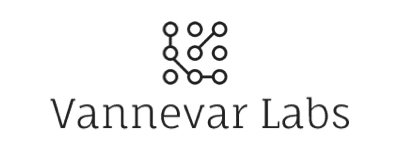





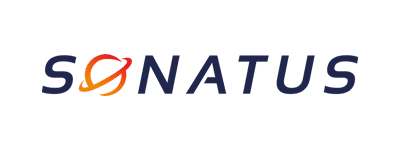




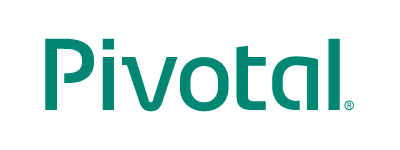
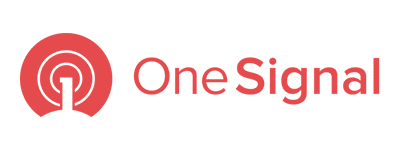

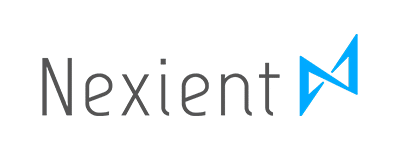

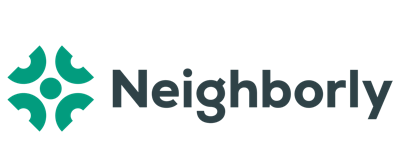







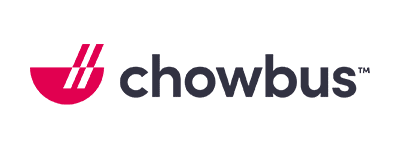




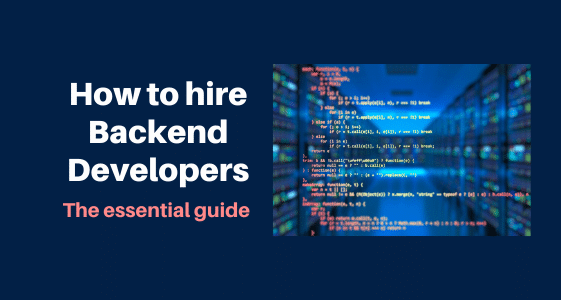


Submit a Comment